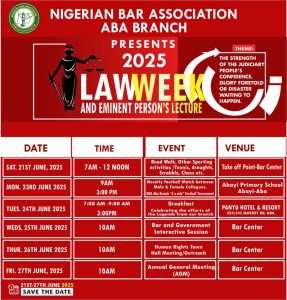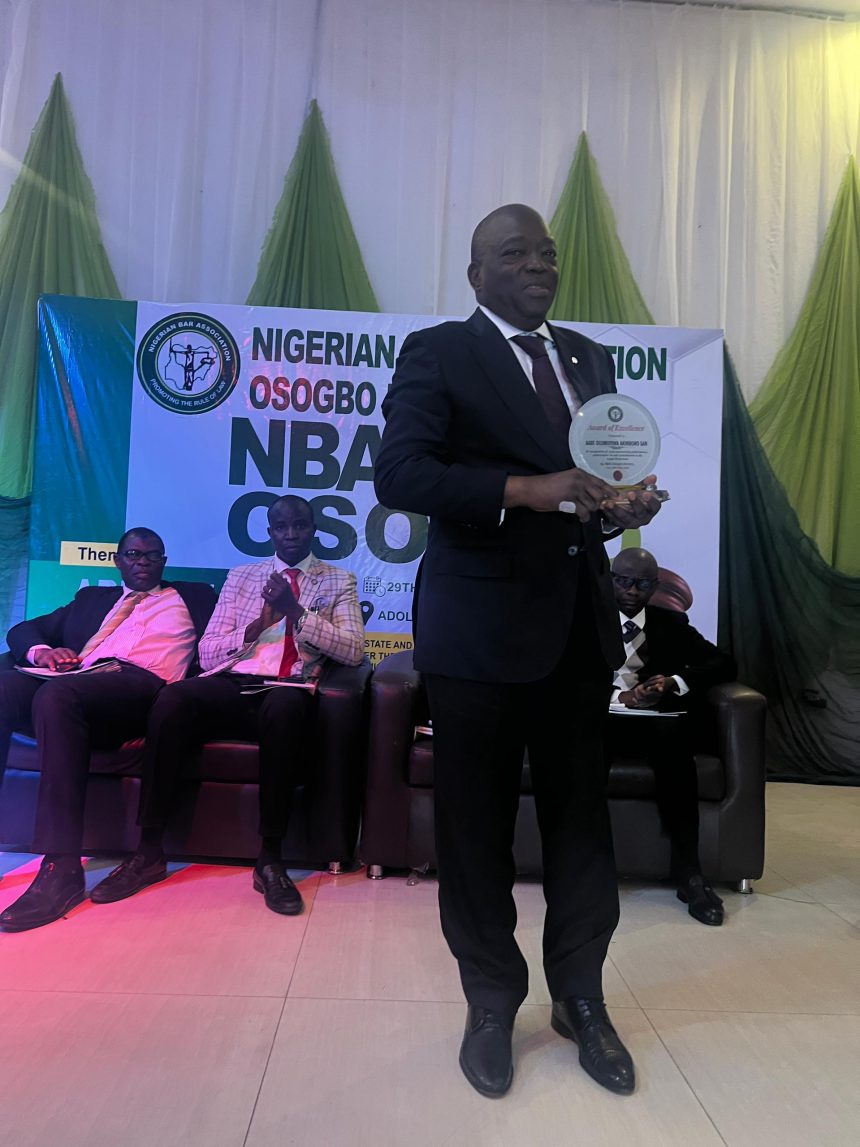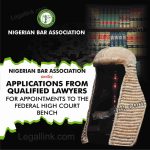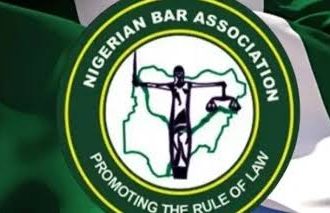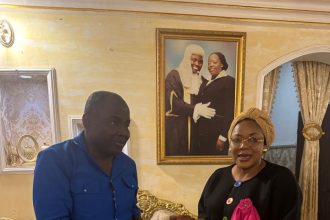Osogbo, Osun State — May 2025
The 2025 Law Week of the Nigerian Bar Association (NBA) Osogbo Branch reached a defining moment as Aare Olumuyiwa Akinboro, SAN, delivered a thought-provoking keynote address titled “State and Local Governments’ Independence under the Constitution of the Federal Republic of Nigeria 1999 (as Amended): A Myth or Reality?”
Addressing an audience comprising distinguished members of the Bar and Bench, the learned Silk commended the Osogbo Branch and its Law Week Planning Committee for choosing a topic that lies at the heart of Nigeria’s governance, democratic practice, and constitutional development.
Federalism: Between Theory and Practice
Akinboro began by contextualizing federalism through authoritative definitions, notably from Black’s Law Dictionary and thefreedictionary.com, emphasizing that true federalism entails a clear constitutional division of powers between the central and subnational governments.
He noted, however, that Nigeria’s practice of federalism is deeply influenced by its colonial and military past—both of which promoted unitary systems of governance.

He criticized the over-concentration of powers at the center, noting that many state governments operate under the overwhelming influence of the federal government.
According to him, the result is that governors often seek political alignment with the central government, prioritizing “connection to the center” over the constitutional assertion of autonomy.
Legislative Powers and Structural Imbalance
Aare Akinboro dissected the constitutional structure under the 1999 Constitution (as amended), pointing out that the Exclusive Legislative List contains 68 items controlled solely by the Federal Government.
Conversely, the Concurrent List—where both federal and state governments can legislate—has only 12 items, which are still subject to federal supremacy by virtue of Section 4(5).
This, he argued, fundamentally weakens state autonomy, as laws passed by State Houses of Assembly are void where inconsistent with federal laws, making state governments overly dependent on the National Assembly.

Local Governments: A Weakened Tier
Touching on local government autonomy, Akinboro described their constitutional status as subordinate. He cited Section 7(1) and 162(6)–(8), which establish State control over the structure, funding, and operations of local councils.
He expressed concern over the lack of direct fiscal access, often resulting in the misappropriation of local government funds through the State Joint Local Government Account system.
He referenced the 2024 Supreme Court decision in Attorney General of the Federation v. Attorney General of Abia State & 35 Ors (SC/CV/343/2024), which directed that local government funds should be disbursed directly from the Federation Account. However, he lamented poor enforcement and state non-compliance.
A Centralized Judiciary and Security System
Akinboro further highlighted judicial centralization as another obstacle to true federalism. He criticized the unitary nature of Nigeria’s judiciary, wherein all courts, federal and state alike, are part of one structure with no separate judicial systems for individual states.
Similarly, the centralized policing structure—backed by Sections 214–216 of the Constitution—deprives states of security autonomy. In contrast to federal systems like that of the United States, where cities and states operate independent police forces (e.g., NYPD, LAPD), Nigeria’s states are unable to enforce localized security frameworks.
Conclusion: Federalism as a Living Practice
In his closing remarks, Akinboro declared that federalism must go beyond constitutional text to become a lived political culture.
He called for constitutional amendments to decentralize power, entrench fiscal federalism, reform judicial appointments, and enable states and local governments to perform their functions without interference.
“Until structural reforms are actualized, Nigeria’s federalism will remain largely ceremonial—a constitutional myth rather than a governing reality,” he concluded.
The keynote speech drew commendation from attendees and ignited robust panel discussions throughout the Law Week, further cementing the NBA Osogbo Branch’s Law Week 2025 as a high-impact forum for legal and constitutional discourse.
Photos:
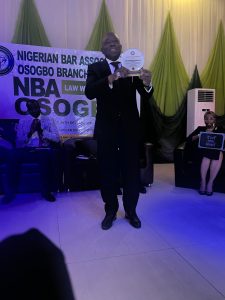
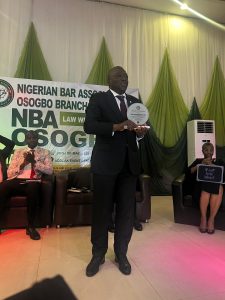
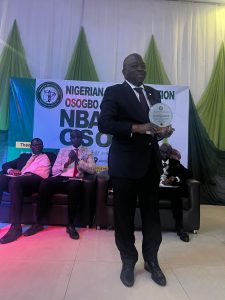
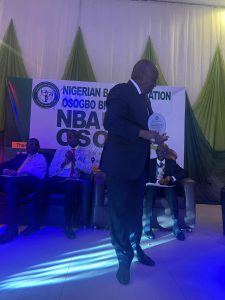
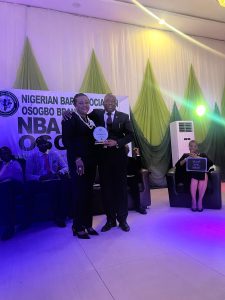
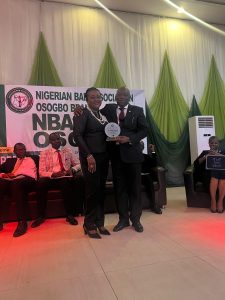
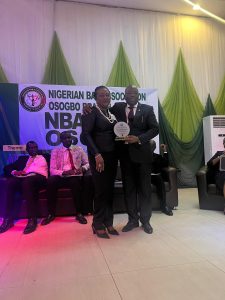
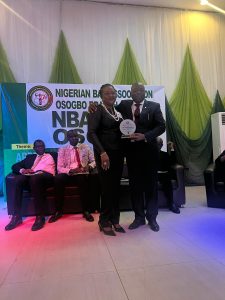
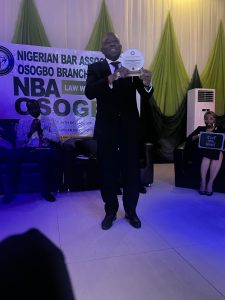
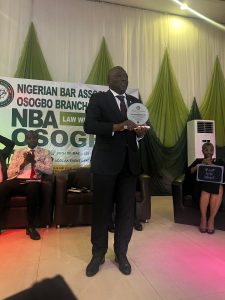
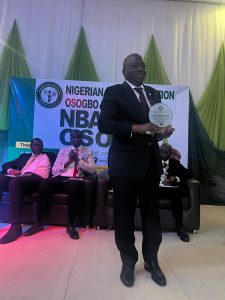
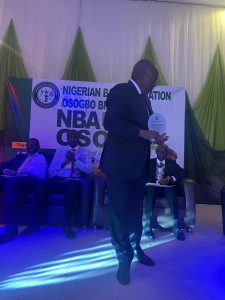
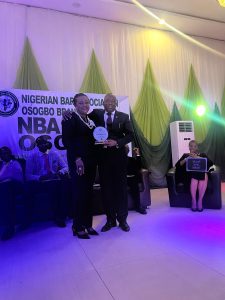
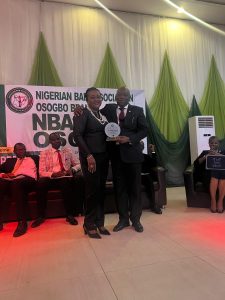
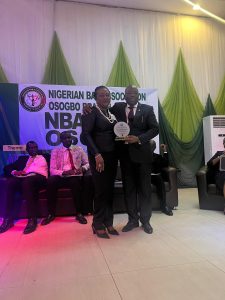
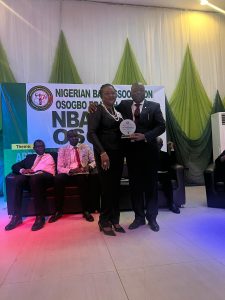
Also Read:
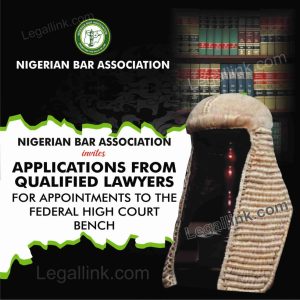
Federal High Court Appointments: NBA Opens Application for Qualified Lawyers from Seven States
